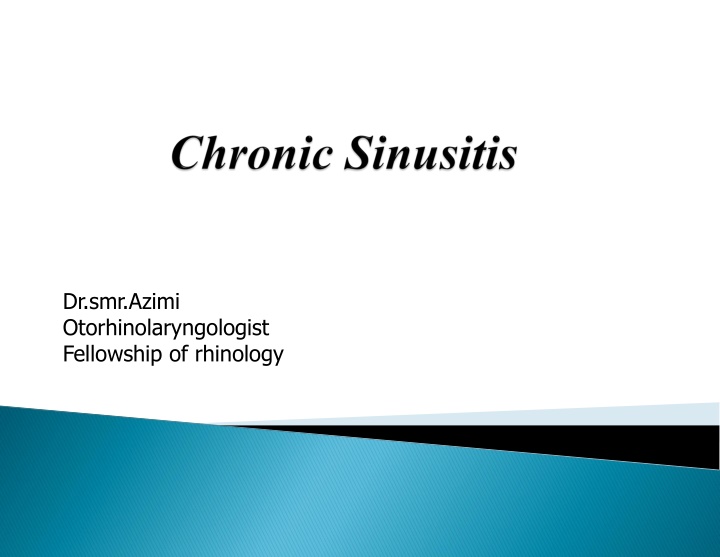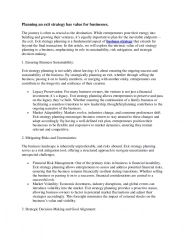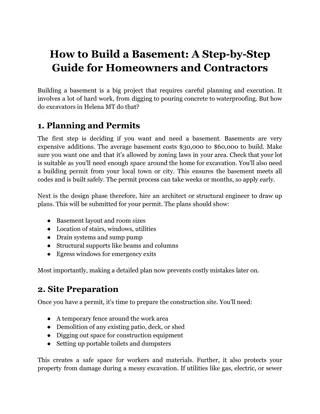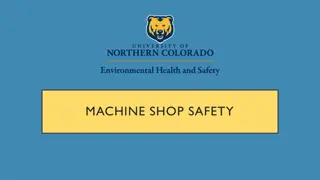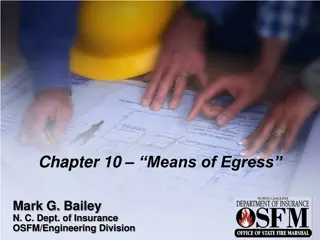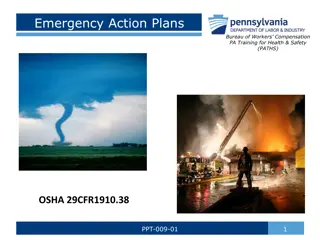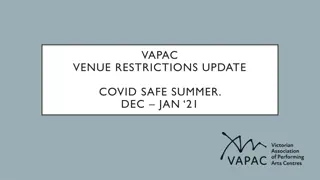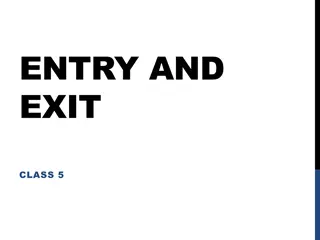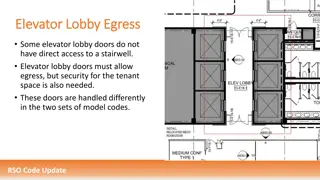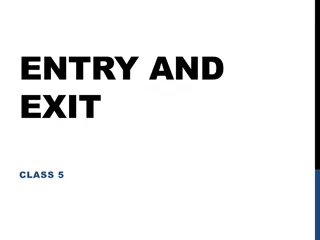Definitions of Egress and Exit Components
A means of egress comprises three distinct parts: exit, exit access, and exit discharge. The exit component is the part between exit access and discharge or public way. It includes various elements like doors, stairways, ramps, and exits. Exit access leads from an occupied space to an exit, while exit discharge is the portion between an exit and a public way. A public way is a space open to the public for public use. Additionally, accessible means of egress provide unobstructed paths for egress travel, and an area of refuge offers temporary shelter during emergencies. The common path of egress travel is measured from the furthest point in a story to where occupants have access to multiple exits.
Download Presentation

Please find below an Image/Link to download the presentation.
The content on the website is provided AS IS for your information and personal use only. It may not be sold, licensed, or shared on other websites without obtaining consent from the author.If you encounter any issues during the download, it is possible that the publisher has removed the file from their server.
You are allowed to download the files provided on this website for personal or commercial use, subject to the condition that they are used lawfully. All files are the property of their respective owners.
The content on the website is provided AS IS for your information and personal use only. It may not be sold, licensed, or shared on other websites without obtaining consent from the author.
E N D
Presentation Transcript
Dr.smr.Azimi Otorhinolaryngologist Fellowship of rhinology
Anatomical variations Deviated Nasal Septum Concha Bullosa Bulla Ethmoidalis Underlying diseases Cystic Fibrosis Ciliary Dyskinesia Immuno-deficiency Granulomatous diseases (wegner)
Anaerobes Staphylococcus aureus Streptococcus H. Influenzae M. catarrhalis
Obstruction of Osteomeatal complex region Impaired mucociliary clearance 1. 2. Stagnation & pooling of secretions Infection Vicious cycle
Chronic nasal obstruction Purulent post nasal discharge Pain over sinuses/ Headache Halitosis Chronic cough
X-ray PNS CT Scan PNS Sinus lavage Sinus aspirate/ Pus swab for C/S
Antibiotics Ciprofloxacin, Augmentin, Clarithromycin, Cefuroxime, Clindamycin, Metronidazole Decongestants Antihistamines Steroid Nasal Drops/ Sprays Surgery- To provide drainage & ventilation
Antral Washout Inferior Meatal Antrostomy Caldwell-Luc s Operation FESS
Anterior wall of the Maxillary sinus is entered through a Sub-labial incision A window is created in the medial wall through Antrostomy Indications - Ch sinusitis refractory to treatment - Repair of Oro-antral fistula - Reccurrent AC polyp - Blow out fracture of floor of orbit - Approach to ethmoids/ PPF
Hole made in anterior wall followed by Inferior Meatal Antrostomy
Intranasal Ethmoidectomy External Ethmoidectomy - Lynch Howarth procedure - Patterson transorbital procedure - Jansen Horgan transantral procedure FESS
Trephination Osteoplastic flap procedure - Coronal incision - Brow incision FESS
Trans-nasal trans-septal approach Sublabial trans-septal approach External ethmoidectomy approach FESS
Indications - Choronic sinusitis refractory to treatment - Nasal polyps - Fungal sinusitis - Antro choanal polyp - Fronto-ethmoidal mucocoele - Repair of CSF leak - DCR - Orbital decompression
Uncinectomy (Infundibulotomy) Bullectomy & Anterior ethmoidectomy Middle meatal antrostomy Perforation of basal lamella Posterior ethmoidectomy Sphenoid sinus exploration Skull base disease clearance Frontal recess exploration
